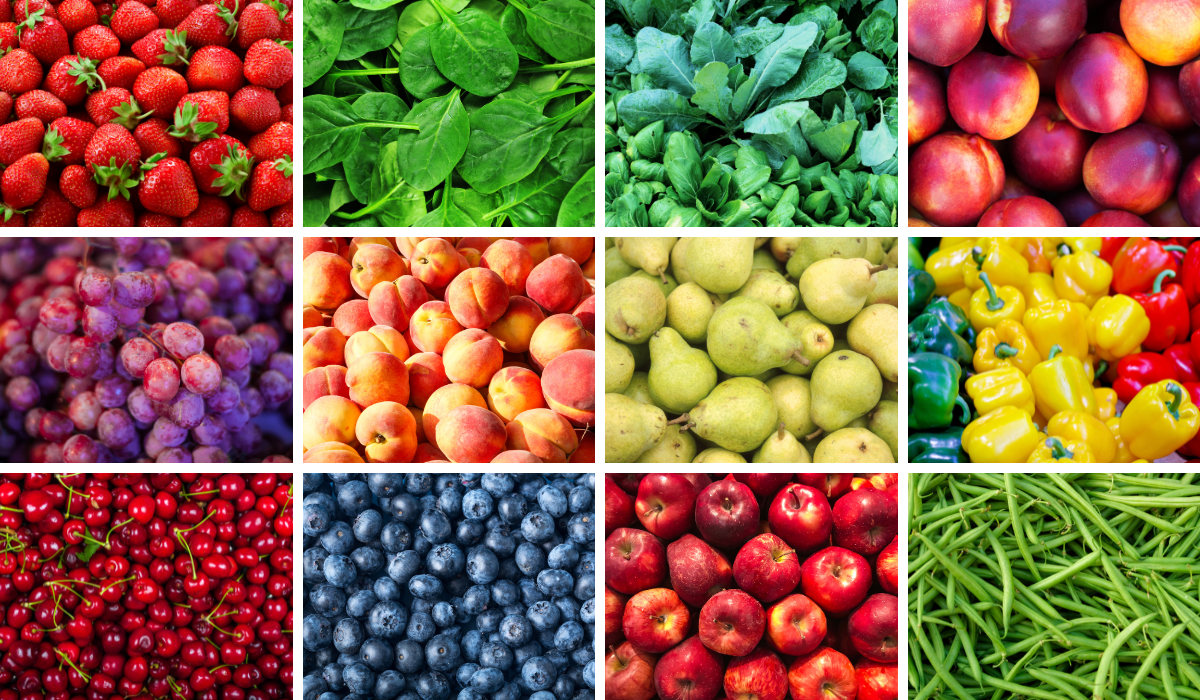Bravo to the EWG for Helping Us Stay Safe and Healthy With Their “Dirty Dozen” and “Clean Fifteen” Lists
The Environmental Working Group’s (EWG) 2024 Shopper’s Guide to Pesticides in Produce™ was released this week. It includes the ‘Dirty Dozen’ list which identifies the 12 non-organic, or conventional, fresh produce with the most pesticides and the ‘Clean Fifteen’ list of the fruits and vegetables with very low or no pesticide residues. This year, EWG determined that 75% of all conventional fresh produce sampled had residues of potentially harmful pesticides. But for items on the Dirty Dozen, a whopping 95% of samples contained pesticides. In contrast, 35% of EWG’s 2024 Clean Fifteen fruit and vegetable samples had detectable pesticide residues.
Check out the Dirty Dozen and Clean Fifteen below, and for more on the EWG’s mission, check out our interview with Jocelyn Lyle, the Executive Vice President of Mission and Partnerships at the Environmental Working Group (EWG) about the steps each of us can take to move the needle in the right direction and do our part to combat climate change.
Dirty Dozen
1. Strawberries
2. Spinach
3. Kale, collard & mustard greens
4. Grapes
5. Peaches
6. Pears
7. Nectarines
8. Apples
9. Bell & hot peppers
10. Cherries
11. Blueberries
12. Green beans
Clean Fifteen
1. Avocados
2. Sweet corn*
3. Pineapple
4. Onions
5. Papaya*
6. Sweet peas (frozen)
7. Asparagus
8. Honeydew melon
9. Kiwi
10. Cabbage
11. Watermelon
12. Mushrooms
13. Mangoes
14. Sweet Potatoes
15. Carrots
**A small amount of sweet corn and papaya sold in the United States is produced from genetically modified seeds. Buy organic varieties of these crops if you want to avoid genetically modified produce. (Source: EWG)
Visit EWG.org to get the EWG’s 2024 Shopper’s Guide to Pesticides in Produce™ and downloadable versions of these lists.
Please note that we may receive affiliate commissions from the sales of linked products.



